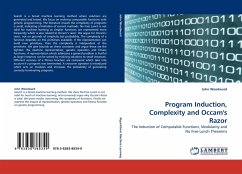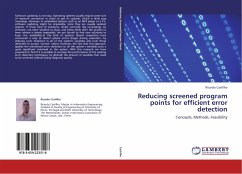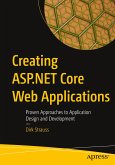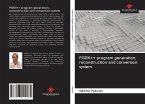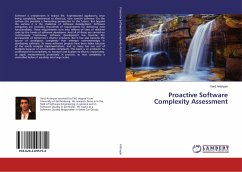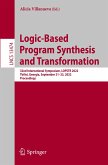Search is a broad machine learning method where solutions are generated and tested. We focus on evolving computable functions with genetic programming. The literature reveals the complexity of programs is small, indicating a limitation of current methods. No Free Lunch is not valid for machine learning as simpler functions are represented more frequently which is also related to Occam's razor. We argue for Occam's razor, not on grounds of simplicity but probability. The complexity of a function depends on the primitives available. If the representation can build new primitives, then the complexity is independent of the primitives. We give bounds on these constants and argue these are the tightest. We examine representation, genetic operators and fitness functions. A representation which addresses a general problem is fruitful as large instances can be solved by evolving solutions to small instances. Different versions of a fitness function are compared which take into account if a program was terminated. A crossover operator is introduced which acts on modules and increases the probability of generating correctly terminating programs.
Bitte wählen Sie Ihr Anliegen aus.
Rechnungen
Retourenschein anfordern
Bestellstatus
Storno

